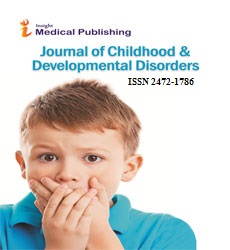Post-Traumatic Stress Disorder
Uzma Williams*
Department of health sciences, Institute for Applied Health Sciences, Canada
- *Corresponding Author:
- Uzma Williams, Department of health sciences, Institute for Applied Health Sciences, Canada, Email: willamuzma@med.cn
Received Date: November 05, 2021; Accepted Date: November 19, 2021; Published Date: November 26, 2021
Citation: Uzma Williams (2021) Posttraumatic stress disorder. J Child Dev Disord. 7 No.11.
Introduction
Post-traumatic stress disorder (PTSD) is a mental health condition caused by witnessing or experiencing a disturbing event. Flashbacks, nightmares, and severe anxiety, as well as uncontrollable thoughts about the event, could be common symptom. Most people that have been through traumatic experiences may have temporary difficulty adjusting and ability to cope, but they usually get better with time and good self-care. Individuals could have PTSD unless their symptoms occur, last for months or even years, and interfere with daily functioning. It is critical to seek effective treatment as soon as PTSD symptoms occur in order to reduce symptoms and improve function.
Symptoms
Symptoms of post-traumatic stress disorder can appear within one month of a traumatic event, but they can also appear years later. These symptoms cause significant problems in social or occupational settings, as well as in relationships. They can also impair their ability to carry out your normal daily tasks. PTSD symptoms are classified into four categories: intrusive memories, avoidance, negative changes in thinking and mood, and changes in physical and emotional reactions. Symptoms may change with time either from person to person.
Intrusive memories
Symptoms includes; unwanted distress of memories about the traumatic events, upsets about the dreams and nightmares, more emotional distress or physical reactions
Avoidance
Try to avoid the events which are scary and frightening and avoid places and people that remind the event.
Negative changes
Negative thoughts and negative thinking may impact in this events, memory problems, and lack of interest and mood in activities.
Physical and emotional reactions
Trouble in sleeping and concentrating about the activities and things, irritation, guilty, angry and aggressiveness behaviour.
Causes
While individuals experience, witness, or learn about an event involving actual or threatened death, serious injury, or sexual violation, they could develop post-traumatic stress disorder. Stressful perceptions, such as the amount and intensity of trauma that they have felt inherited mental health risks, such as a family background of anxiety and depression
Personality traits inherited from your parents — also known as temperament the process by which their brain regulates the substances and hormones released by one’s body in response to stress.
Risk Factors
Post-traumatic stress disorder can affect people of any age. Some factors, however, may increase your risk of developing PTSD following a traumatic event, such as experiencing severe or longterm trauma, having been subjected to other forms of trauma in the past, such as childhood abuse, experiencing troubles with substance abuse, such as alcohol consumption or opioid use.
Prevention
Many people will experience PTSD-like symptoms after surviving a traumatic event, such as unable to stop thinking about what happened. Fear, anxiety, anger, depression, and guilt are now all common reactions to trauma. The majority of people who are exposed to trauma, however, do not build long-term posttraumatic stress disorder. Acquiring help and assistance as soon as possible may protect normal chronic stress from worsening and continuing to develop into PTSD. This may imply reaching out to friends and family who will hear and provide comfort. It could imply contacting a mental health specialist for a brief course of therapy. Some people may also find it advantageous to reach out to their faith community.
Open Access Journals
- Aquaculture & Veterinary Science
- Chemistry & Chemical Sciences
- Clinical Sciences
- Engineering
- General Science
- Genetics & Molecular Biology
- Health Care & Nursing
- Immunology & Microbiology
- Materials Science
- Mathematics & Physics
- Medical Sciences
- Neurology & Psychiatry
- Oncology & Cancer Science
- Pharmaceutical Sciences
